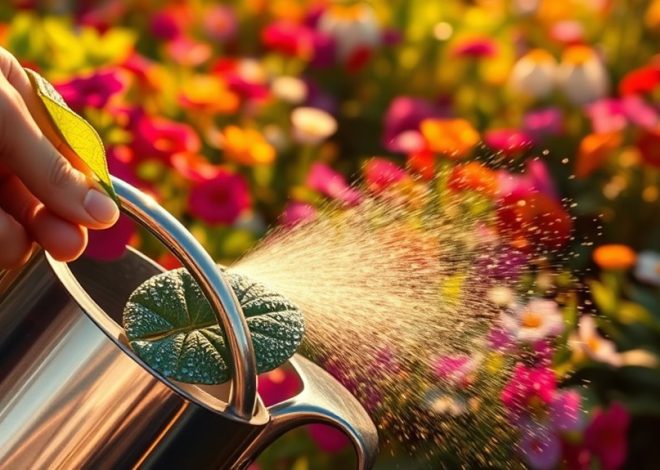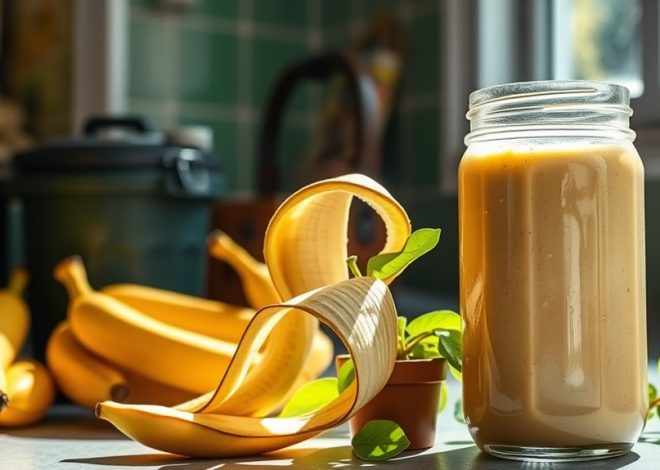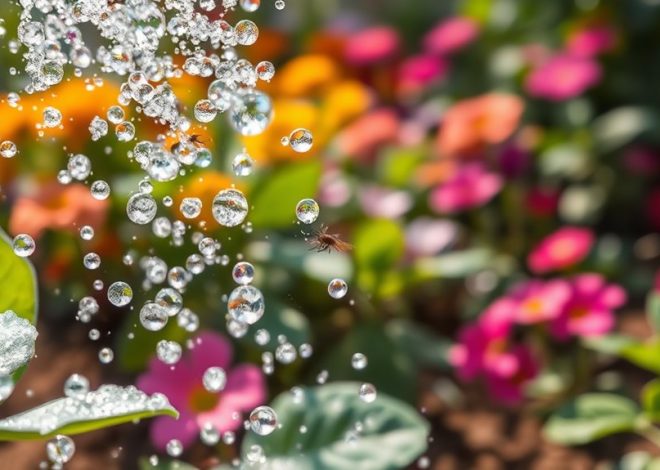
What I Add to My Compost That Supercharges My Soil
What I Add to My Compost That Supercharges My Soil
Did you know that composting can reduce household waste by up to 30%? By carefully selecting ingredients for your compost, you can significantly enhance soil health and plant vitality. From kitchen scraps to yard waste, each component plays a critical role. Understanding the specific benefits of these additives will help you create a nutrient-rich blend that transforms your garden. What key elements should you consider to maximize your compost’s effectiveness?
Key Takeaways
- Coffee grounds provide nitrogen, improve soil texture, and attract earthworms, enhancing nutrient cycling and soil fertility.
- Eggshells add calcium for strong plant structures and help maintain optimal pH levels in the soil.
- Vegetable scraps enrich compost with essential nutrients, enhance microbial activity, and reduce kitchen waste.
- Yard waste, including grass clippings and leaves, contributes nitrogen and carbon, promoting balanced compost and healthy soil.
- Seaweed introduces essential minerals and beneficial microbes, boosting soil moisture retention and overall ecosystem health.
Kitchen Scraps: The Nutrient Goldmine
When you consider composting, remember that kitchen scraps serve as a nutrient goldmine for your compost pile.
These organic materials, including vegetable peels, fruit cores, and coffee grounds, enhance microbial activity, speeding up decomposition. Composting not only reduces waste but also contributes to nutrient-rich compost that benefits your garden.
To maximize their effectiveness, follow compost booster tips: balance carbon and nitrogen by adding browns like dry leaves; chop scraps into smaller pieces for quicker breakdown; and avoid adding dairy or meat, which can attract pests.
Regularly aerate the pile to maintain oxygen flow, ensuring efficient composting.
Yard Waste: Nature’s Natural Fertilizer
Yard waste, including leaves, grass clippings, and small branches, plays a crucial role in enriching your compost.
When you understand the types of yard waste and their specific benefits for soil health, you can optimize your composting techniques.
This knowledge empowers you to create a more effective compost system that enhances nutrient availability for your garden. Additionally, incorporating essential compost booster tips can significantly improve the decomposition process and nutrient content of your compost.
Types of Yard Waste
Composting yard waste transforms what might be discarded into a valuable resource for your garden. Different types of yard waste contribute unique nutrients, promoting a balanced compost. Here’s a breakdown:
| Type of Yard Waste | Nutritional Component |
|---|---|
| Grass Clippings | Nitrogen |
| Leaves | Carbon |
| Branches | Carbon and Minerals |
| Plant Trimmings | Various Nutrients |
| Weeds | Nitrogen and Organic Matter |
Benefits for Soil
How does yard waste enhance soil health?
By adding organic material, you’re creating a richer, more vibrant ecosystem.
Here are four benefits yard waste provides to your soil:
- Nutrient Enrichment: Yard waste decomposes, releasing essential nutrients like nitrogen, phosphorus, and potassium.
- Improved Structure: It enhances soil structure, allowing better aeration and drainage.
- Microbial Activity: Decomposing materials stimulate beneficial microbial populations, which aid in nutrient cycling.
- Moisture Retention: Organic matter increases the soil’s ability to retain moisture, reducing the need for frequent watering.
Incorporating yard waste is a simple, effective way to supercharge your soil.
Composting Techniques Explained
What techniques can you employ to maximize the benefits of yard waste in your compost?
Start by shredding larger materials like branches and leaves; this increases surface area, accelerating decomposition.
Maintain a balanced carbon-to-nitrogen ratio by mixing browns (dry leaves, straw) with greens (grass clippings, kitchen scraps).
Turn your compost regularly to aerate it, promoting microbial activity.
Monitor moisture levels; compost should be damp but not soggy.
Finally, consider layering your yard waste with other compost ingredients to enhance nutrient diversity.
These techniques not only speed up the composting process but also yield richer, more fertile soil for your garden.
Coffee Grounds: The Caffeine Boost for Soil
Coffee grounds serve as a valuable addition to compost, enhancing its nutrient profile and boosting soil health.
When you add coffee grounds, you’re providing essential elements that benefit microbial activity and plant growth. Consider these key advantages:
- Nitrogen Source: Grounds are rich in nitrogen, a crucial nutrient for plant development.
- Soil Texture Improvement: They improve soil aeration and drainage.
- pH Balance: Coffee grounds can help moderate soil acidity, benefiting various plants.
- Worm Attraction: They attract earthworms, which aerate the soil and enhance nutrient cycling.
Additionally, using coffee grounds as compost contributes to reducing kitchen waste, making your composting efforts both environmentally friendly and efficient.
Integrating coffee grounds into your compost will significantly enhance soil vitality.
Eggshells: A Calcium-Rich Addition
Eggshells provide a significant calcium boost for your compost, enhancing plant health and growth. This addition not only supports nutrient availability but also helps maintain optimal pH levels in the soil. Additionally, reusing kitchen scraps like eggshells contributes to a more sustainable gardening practice by reducing waste.
Nutrient Boost for Plants
Adding eggshells to your compost not only recycles kitchen waste but also enhances the nutrient profile of your soil.
The calcium in eggshells plays a crucial role in plant health and growth.
Here’s how they boost your compost:
- Calcium Source: Provides essential calcium for cell wall development.
- Soil Structure: Improves soil aeration and drainage.
- Nutrient Absorption: Facilitates the uptake of other vital nutrients.
- Microbial Activity: Supports beneficial microorganisms in the compost.
Ph Balance Benefits
Incorporating eggshells into your compost not only enriches the nutrient profile but also positively influences pH balance in the soil.
Eggshells are primarily composed of calcium carbonate, a substance that can help neutralize acidic soil conditions.
By adding crushed eggshells, you provide a slow-release source of calcium, which raises the pH level over time.
This adjustment fosters a more balanced environment for beneficial microorganisms and enhances nutrient availability for plants.
Maintaining an optimal pH level is crucial for plant health, as it directly impacts nutrient uptake.
Thus, eggshells serve as both a practical amendment and a pH stabilizer in your compost.
Manure: The Organic Powerhouse
Manure serves as an organic powerhouse in the composting process, enriching your compost with essential nutrients.
When you add manure, consider these key benefits:
- Nitrogen-Rich: Boosts microbial activity, promoting decomposition.
- Organic Matter: Improves soil structure and moisture retention.
- Beneficial Microbes: Introduces diverse microorganisms that enhance soil health.
- Trace Minerals: Supplies essential minerals that plants need for growth.
Using well-composted manure ensures you avoid pathogens and odors, making it a safe choice for your garden. Additionally, adding manure helps create a balanced compost mix, which is vital for optimal plant growth.
Incorporating this powerhouse into your compost will significantly enhance your soil’s fertility and overall productivity.
Seaweed: A Mineral-Rich Superfood
Seaweed stands out as a mineral-rich superfood for compost, offering a unique blend of nutrients that can significantly enhance soil health.
It’s packed with essential minerals like potassium, magnesium, and calcium, which improve plant resilience. Additionally, seaweed contains growth hormones such as auxins and cytokinins, promoting root development and overall plant vigor.
When added to compost, it accelerates microbial activity, enriching the organic matter. Its natural ability to retain moisture also aids in soil structure, helping plants withstand drought. Moreover, the incorporation of seaweed serves as a secret compost booster, further enriching your garden’s ecosystem and productivity.
Incorporating seaweed into your compost not only diversifies nutrient sources but also boosts your garden’s productivity and ecological balance.
Worm Castings: The Ultimate Soil Enhancer
How do worm castings transform your compost into a potent soil enhancer?
These nutrient-rich byproducts are essential for maximizing soil health.
By adding worm castings, you’re supplying:
- Nutrients: High levels of nitrogen, phosphorus, and potassium.
- Microorganisms: Beneficial bacteria and fungi that improve soil structure.
- Moisture retention: Enhancing the soil’s ability to retain water.
- pH balance: Naturally neutralizing soil acidity, promoting nutrient availability.
Incorporating worm castings into your compost not only enriches your soil but also supports sustainable gardening practices, making it an invaluable addition for any garden enthusiast.



